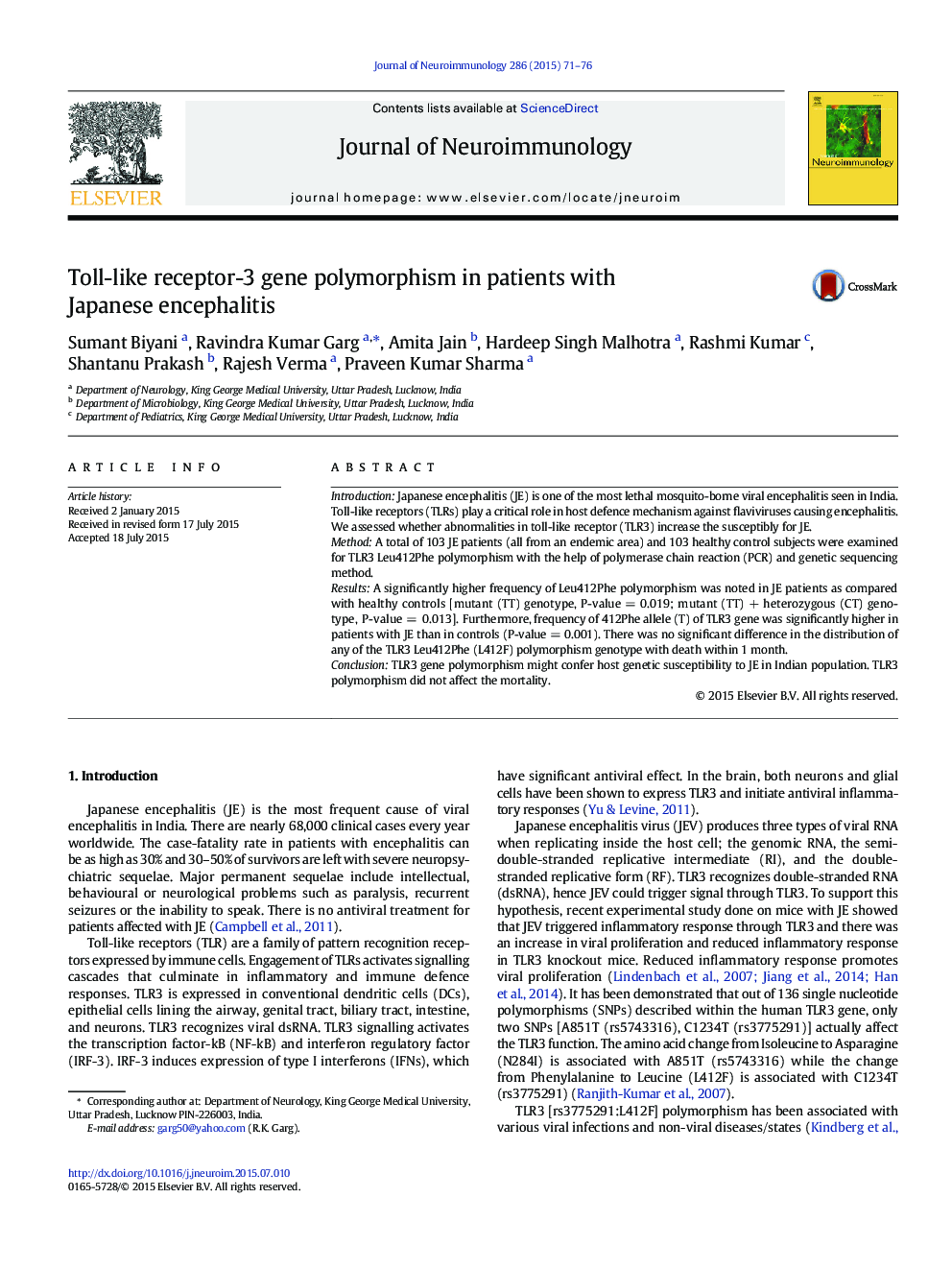| کد مقاله | کد نشریه | سال انتشار | مقاله انگلیسی | نسخه تمام متن |
|---|---|---|---|---|
| 6020057 | 1580388 | 2015 | 6 صفحه PDF | دانلود رایگان |

- TLRs play a role in host defence mechanism against flaviviruses causing encephalitis.
- A higher frequency of TLR3 Leu412Phe polymorphism was noted in Japanese encephalitis.
- TLR3 polymorphism was not associated with the mortality in Japanese encephalitis.
IntroductionJapanese encephalitis (JE) is one of the most lethal mosquito-borne viral encephalitis seen in India. Toll-like receptors (TLRs) play a critical role in host defence mechanism against flaviviruses causing encephalitis. We assessed whether abnormalities in toll-like receptor (TLR3) increase the susceptibly for JE.MethodA total of 103 JE patients (all from an endemic area) and 103 healthy control subjects were examined for TLR3 Leu412Phe polymorphism with the help of polymerase chain reaction (PCR) and genetic sequencing method.ResultsA significantly higher frequency of Leu412Phe polymorphism was noted in JE patients as compared with healthy controls [mutant (TT) genotype, P-value = 0.019; mutant (TT) + heterozygous (CT) genotype, P-value = 0.013]. Furthermore, frequency of 412Phe allele (T) of TLR3 gene was significantly higher in patients with JE than in controls (P-value = 0.001). There was no significant difference in the distribution of any of the TLR3 Leu412Phe (L412F) polymorphism genotype with death within 1 month.ConclusionTLR3 gene polymorphism might confer host genetic susceptibility to JE in Indian population. TLR3 polymorphism did not affect the mortality.
100
Journal: Journal of Neuroimmunology - Volume 286, 15 September 2015, Pages 71-76